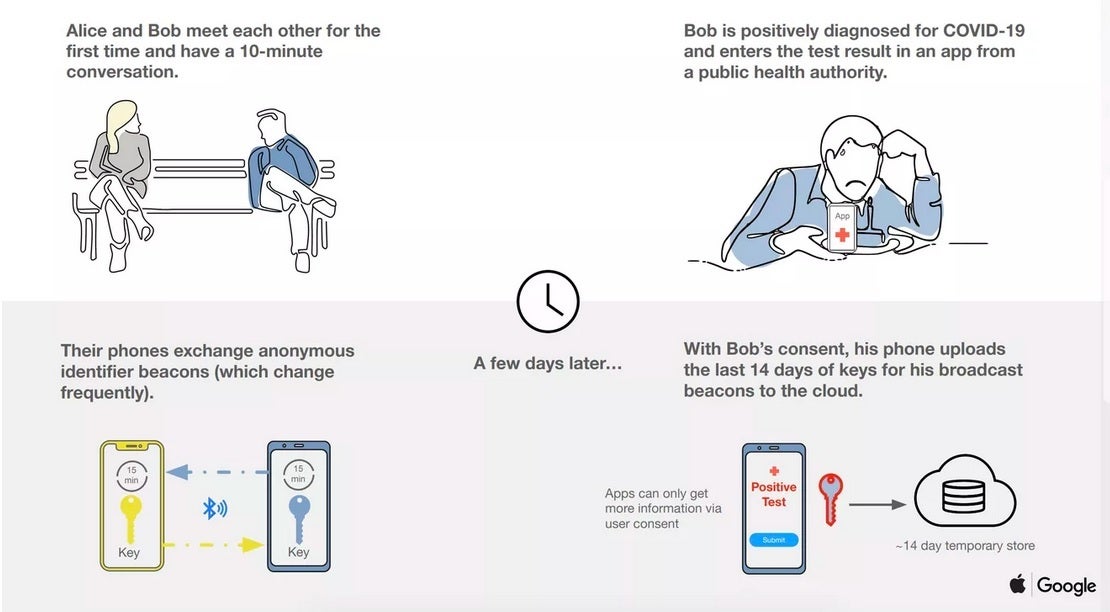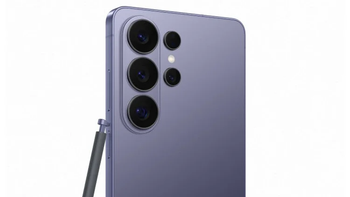The success of Apple and Google's contact tracing plan will be determined by one thing

Apple and Google's contact tracing plan might be one of the best tools that we have to reduce the spread of COVID-19. The two rivals together are responsible for the operating system used on over 99% of the smartphones in the world. Simply put, the phones belonging to those who opt-in to the contact tracing will build a database that collects identifiers representing people that were in their vicinity for a two-week period. This is all done anonymously and everything is stored on-device.
If someone tests positive for COVID-19, they go to an app developed by a public health organization and check off a box stating that they are COVID-19 positive. All of the anonymous phone owners in that person's database collected over the last two weeks are sent a notice. The message states that they have been in the vicinity of someone who tested positive for the virus and should get tested immediately. If every person who receives this notice gets tested, we might be able to keep those carrying the virus off of the streets.
The success of Apple and Google's contact tracing plan will be determined by the public's trust in these companies
For this plan to work, the opt-in rate has to be very high and many people in the U.S. and Europe don't trust Apple or Google. Republican Senator Josh Hawley of Missouri wrote a letter to Tim Cook and Sundar Pichai, the CEOs of Apple and Google respectively. The Senator's letter pointed out how the anonymous data collected by Apple and Google could be cross-referenced with another set of data to reveal the identities of the anonymous participants in the program. In his letter, Senator Hawley wrote, "Pairing the data from this project with the GPS data that both your companies already collect could readily reveal individual identities. Worse, when paired with other data sets, the data from this project could create an extraordinarily precise mechanism for surveillance." Senator Hawley was also concerned that after the pandemic ends, Google will use the interface from the contact tracing platform to sell location data to advertisers.

This is how Apple and Google's contact tracing plan will work
According to AppleInsider, a group of Republican Senators has decided that it isn't taking any chances and will introduce a bill that will allow the government to regulate how Google and Apple can use the consumer data they collect. The bill says that consumers would have to give consent to take part in the contact tracing and the companies will have to tell consumers how their data is being used, how long this data will be collected, and whom it will be shared with. Importantly, once this anonymous data is no longer needed, it must be deleted.
Beta versions of Apple and Google's "exposure notification" APIs were released to developers last week and later this year the two will add the platform to their respective operating systems although users will be forced to opt-in. And this is where the public is going to have to trust that Apple and Google are protecting their personal information. Without a high adoption rate, contact tracing becomes useless-a good idea gone to waste. On the other hand, we know that Apple and Google (along with Amazon) were "accidentally" collecting parts of conversations overheard by their virtual assistants in the name of improving user experience.
Last year we told you that Siri recorded private conversations that iPhone owners had with their doctors and recorded intimate moments as well. These snippets were sent to a contractor that Apple hired to grade Siri's performance. A whistleblower said that the sound of a zipper was often mistaken by Siri for the "Hey Siri" hotword that activates the virtual assistant. And during the pandemic, U.K. law firm Mishcon de Reya LLP told its lawyers working from home to turn off Google Assistant or Alexa on any smart speakers in their homes. The concern is that these digital assistants could pick up parts of phone calls discussing confidential legal matters.
Most companies now allow users to opt-out of such data collection done to grade or improve their digital assistants, but the real question is whether consumers around the world trust Apple and Google. The answer will determine how successful their contact tracing plan will be in the battle against COVID-19.
Follow us on Google News













Things that are NOT allowed:
To help keep our community safe and free from spam, we apply temporary limits to newly created accounts: